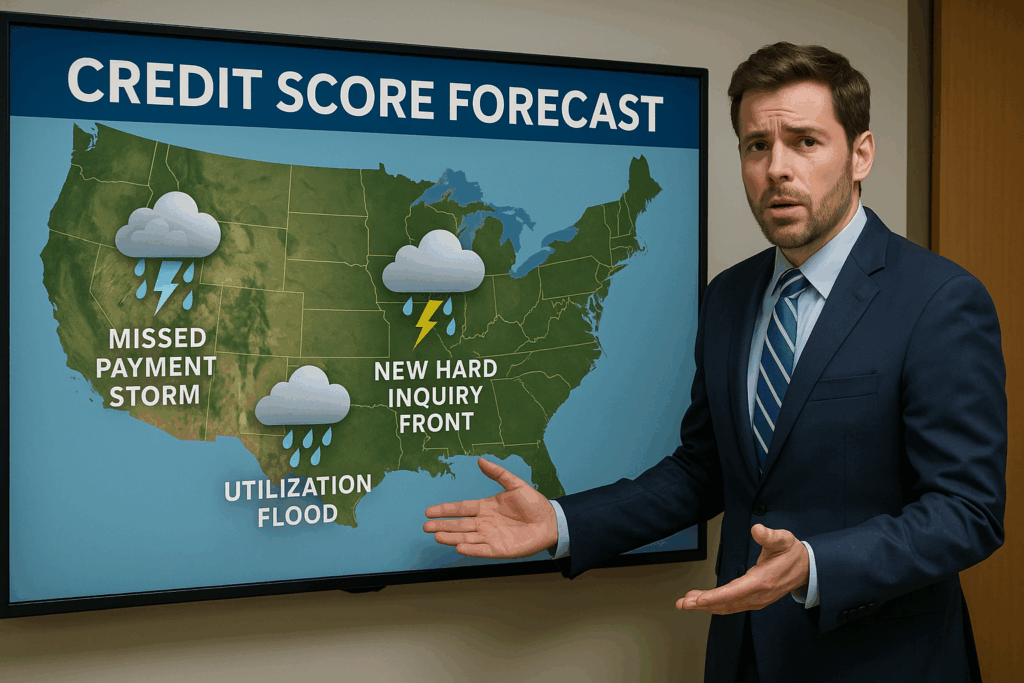Why Did My Credit Score Drop?

A sudden drop in your credit score can be frustrating, especially if you’re unsure why it happened. Credit scores fluctuate based on your financial behavior, and understanding the factors behind these changes can help you take control. If you’re asking yourself why did my credit score drop, here are some of the most common reasons and what you can do to fix them.
1. Late or Missed Payments
Your payment history is the most significant factor in determining your credit score. A single missed or late payment can cause a noticeable drop, especially if you typically have a strong payment history. Payments that are more than 30 days late are reported to credit bureaus and can remain on your credit report for seven years.
How to fix it:
- Set up automatic payments or reminders to ensure you pay bills on time.
- If you missed a payment, pay it as soon as possible to minimize the impact.
- Contact your creditor to see if they will remove the late payment from your report.
2. Increased Credit Utilization
A higher balance on your credit cards can significantly impact your credit score. Your credit utilization ratio (the percentage of your available credit that you’re using) plays a major role in your score. If you’ve recently made a large purchase or carried a higher-than-usual balance, it can cause your score to drop.
How to fix it:
- Pay down your credit card balances as quickly as possible.
- Keep your credit utilization below 30% for a healthier score.
- Ask for a credit limit increase to lower your utilization ratio.
3. A Credit Limit Decrease
If a lender lowers your credit limit, your credit utilization ratio will increase even if your balance remains the same. This can make it look like you’re relying more on credit, which may lower your score.
How to fix it:
- Contact your credit card issuer to request a credit limit increase.
- Pay down existing balances to compensate for the lower limit.
- Avoid making large purchases that increase your credit usage.
4. Closing a Credit Card
Canceling a credit card can reduce your total available credit and shorten your credit history. Both factors contribute to your overall credit score, and closing an older account can cause a decline.
How to fix it:
- Consider keeping old accounts open, even if you don’t use them often.
- Use the card occasionally for small purchases to keep it active.
- If you must close a card, pay off balances on other cards to lower your utilization ratio.
5. Applying for New Credit
When you apply for a new loan or credit card, the lender conducts a hard inquiry on your credit report. Too many hard inquiries in a short period can cause a temporary drop in your score.
How to fix it:
- Only apply for new credit when necessary.
- If shopping for a loan, try to complete all applications within a short time frame.
- Check your credit score before applying to ensure you meet the lender’s requirements.
6. A Major Derogatory Mark Appeared
Negative marks such as collections, charge-offs, bankruptcies, or foreclosures can significantly impact your credit score. These items can stay on your report for years and cause long-term damage.
How to fix it:
- Review your credit report for accuracy and dispute any errors.
- Work with creditors to settle outstanding debts.
- Avoid additional negative marks by making on-time payments moving forward.
7. A Mistake or Fraudulent Activity
Sometimes, errors on your credit report or fraudulent activity can lead to an unexpected drop in your credit score. If you see an unfamiliar account or incorrect information, it could be a sign of identity theft or a reporting mistake.
How to fix it:
- Review your credit report regularly for inaccuracies.
- Dispute incorrect information with the credit bureaus.
- Place a fraud alert on your credit file if you suspect identity theft.
8. You Paid Off a Loan
While paying off a loan is a positive financial move, it can cause a temporary drop in your credit score. This happens because closing an installment loan reduces your credit mix and overall account history.
How to fix it:
- Keep other credit accounts open and active to maintain a diverse credit mix.
- Continue to make on-time payments on remaining accounts.
- Understand that the drop is temporary, and your score will likely recover over time.
Why Did My Credit Score Drop and What Can I Do Next?
If you’re still wondering, “Why did my credit score drop?”, start by reviewing your credit report to identify the cause. Keep in mind that credit scores fluctuate, and even a temporary dip is not always a cause for alarm. By practicing good financial habits (paying bills on time, maintaining low credit utilization, and monitoring your credit report) you can rebuild and improve your score over time.
Monitoring your credit regularly can help you catch changes early and take proactive steps to protect your financial health. If you notice an unexpected drop, take the time to investigate and make adjustments to get your credit back on track.
If you ever need expert assistance or guidance on your credit journey, don’t hesitate to reach out to the Nerds! Additionally, stay updated with the latest tips and information by following us on Facebook, Instagram and TikTok!

